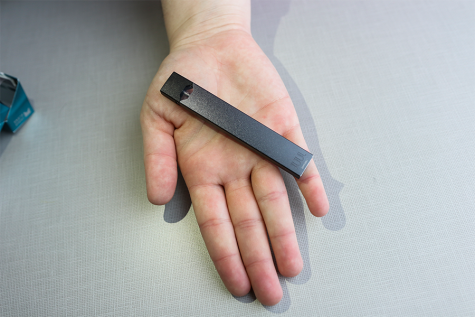Looking forward: #METOO
Students, professionals describe the aftermath of sexual assault
Though the February issue of the Booster Redux highlighted the rise of the #MeToo movement, the aftermath of sexual assault remained in the dark. Students, who will remain anonymous, along with professionals intend to bring the hereafter of sexual assault to light.
Although the legal procedures following a report of sexual assault can take time, Elizabeth began her road to recovery and healing after her trial, where her assailant was convicted.
“When the judge overturned [the perpetrators’] plea and said he was going to prison, I felt like that was my first step in healing,” Elizabeth said. “We had been going through this for years and it was finally just a relief to see him go down for what he has done.”
Through her 13 years of work at the Pittsburg Police Department, Sergeant Rebekah Lynch has conducted several sexual assault investigations like Elizabeth’s.
Lynch suggests the best course of action for a victim immediately following their assault.
“The very first thing the victim should do is get where they are safe,” Lynch said. “Children, in my opinion, should go directly to a parent or trusted adult and tell someone about it. For a teenager or adult, once they’re safe, I would recommend calling the police first, then they need to get ahold of a trusted person, so they have a support system.”
The most evidence can be found immediately following a sexual assault.
“It’s recommended that the victim doesn’t shower or change clothes no matter how much they want to do so,” Lynch said. “There is so much evidence that is within the clothing and on their body itself that is very crucial.”
Evidence can be gathered if the victim undergoes a sexual assault exam through the hospital. However, this step is optional.
“Once they get ahold of the police and once they’re safe, we can help them go through the process with the sexual assault exam. After the exam, if [the nurse] has taken swabs and believes the suspect’s DNA is probably in that evidence, they’ll send that to the Kansas Bureau of Investigation laboratory,” Lynch said. “It could be several months up to over a year before we get information back, before we get a case charged. Or it could be as quick as a few days. It’s completely dependent on the case itself.”
School nurse Lisa Schwob understands the procedures of a sexual assault exam.
“There are nurses and doctors who are specifically trained in exactly what to look for, especially if it is right after the assault,” Schwob said. “It is very specific, especially if you are going to go to trial or are wanting to press charges, you have got to have that proof.”
Oftentimes, an assault can be reported after a sexual assault exam.
“If they go to the hospital first, then the sexual assault nurse will make sure that they know how to contact us,” Lynch said. “A lot of times when adult victims first go to the hospital for a sexual assault exam, they get a choice whether or not they report their [assault] to the police.”
Along with reporting it through the hospital, there are a few different ways a person could report sexual assault.
“They can call in and have an officer come to them if they are not comfortable coming into the police department or they can come directly into the department and speak with an officer there,” Lynch said.
Other ways sexual assaults can be reported are through mandated reporters such as teachers, counselors, social workers, etc. As a mandated reporter, Schwob has approximately reported three sexual assaults with each year she has been at the school.
“The student usually contacts either the counselors or me, and most of the time we get together so they don’t have to repeat their story over and over,” Schwob said. “As mandated reporters, there is a number to SRS or Children’s Welfare that we call. After we make the call, we tell them what we’ve heard, and from there, it is in their hands.”
Others who know of someone’s sexual assault can reach out to the Police Department and report the known incident. The department could then reach out to the victim to see if they are interested in filing a report.
No matter the length of time following the assault, it can always be reported.
“It is never too late to report sexual abuse or sexual violence,” Lynch said. “Some victims do not feel comfortable doing so right away and that’s okay. We work with all victims and have investigated crimes reported months or even years later.”
Lynch suggests that, although people may not call in their assault, it is the most effective way to get results.
“I can tell anyone with 100% accuracy that if [the assault] is never reported, there is nothing we can do about it,” Lynch said.
Lynch explains that in cases where the victim reports an assault and the suspect denies the accusations, the investigators will send an affidavit, sworn statements, to the County Attorney’s Office for review. The County Attorney will then decide if there is enough probable cause that the crime occurred and either decline to prosecute the case, in which there are no charges placed, or if there is enough evidence, charge the suspect. If the case is prosecuted, a warrant for the suspect would be issued and an arrest may be made. Anytime an arrest is made, the court process may begin.
Sexual abuse victim advocate Whitney Lovell of the Pittsburg Child Advocacy Center believes that the legal procedures, including the court process, can assist in victim healing.
“Although testifying may be scary, I think getting to go to court gives a child a voice to get up and tell what happened to them,” Lovell said. “Building a rapport with the kids, making sure they know someone is in their corner helping them through the whole process, gives them their voice back.”
Though Erin, PHS graduate, did not undergo a legal case, she feels as though her healing began when she shared details of her sexual assault with a friend.
“The first time I felt any relief was when I told my best friend,” Erin said. “I didn’t tell anyone for a while but once I finally did, it was a huge weight off my chest. I didn’t realize it before but it was killing me keeping it to myself.”
Along with talking about the assault, Lovell believes there are many ways to cope with the incident.
“Just finding a hobby that you can put energy into can really help,” Lovell said. “Find something you like to do, something that can be therapeutic. Some people write, some use art or dance,” Lovell said.
For Erin, continuing life as normal and putting her energy toward daily tasks helps.
“I know my healing is not over yet. But I know it’s starting to get better. Mostly I just try to carry on with my day and not think about it,” Erin said. “I stay occupied with school and work and I try to not let it interfere with my life or hold me back in any way. I don’t want to give that power to the perpetrator.”
Another step Elizabeth has taken in her healing is hoping for the best in the end.
“A big part of my healing has been just praying and believing that someday it is going to be okay,” Elizabeth said.
Along her road to healing, Elizabeth has learned self-worth.
“When you feel even partly healed, it feels so much better and makes you more open and you realize that you don’t have to be a reflection of the way the perpetrator made you feel,” Elizabeth said. “When you think that way, the confidence comes naturally. It can also help you to trust people more after.”
Like Elizabeth, Erin feels that in order for healing to begin, one must take blame off of themselves.
“I think it’s always hurtful to think about and it sticks in the back of your mind, but when you finally accept that it wasn’t your fault and think about it less and less you’ll finally start to be healed,” Erin said.
Schwob believes victimizing oneself is something that holds back the healing process.
“They need to talk about it and get it out and we can’t just hear what they say and downplay it. We need to take what they say and actually listen. We need to help them relieve that burden, that guilt,” Schwob said. “Don’t let the fact that you are or were a victim define you or who you are. You are more than your assault. You may be a victim, but you are yourself first.”
Though she believes healing is essential after experiencing sexual abuse or assault, Elizabeth believes that victims, including herself, can not heal entirely.
“I don’t think I will ever fully heal or feel completely healed, not all the way. Like a wound, it will never completely go away, just scar over,” Elizabeth said. “Things are going to get better but you will always have the pain that person left there.”
Your donation will support the student journalists of Pittsburg High School - KS. Your contribution will allow us to purchase equipment and cover our annual website hosting costs.


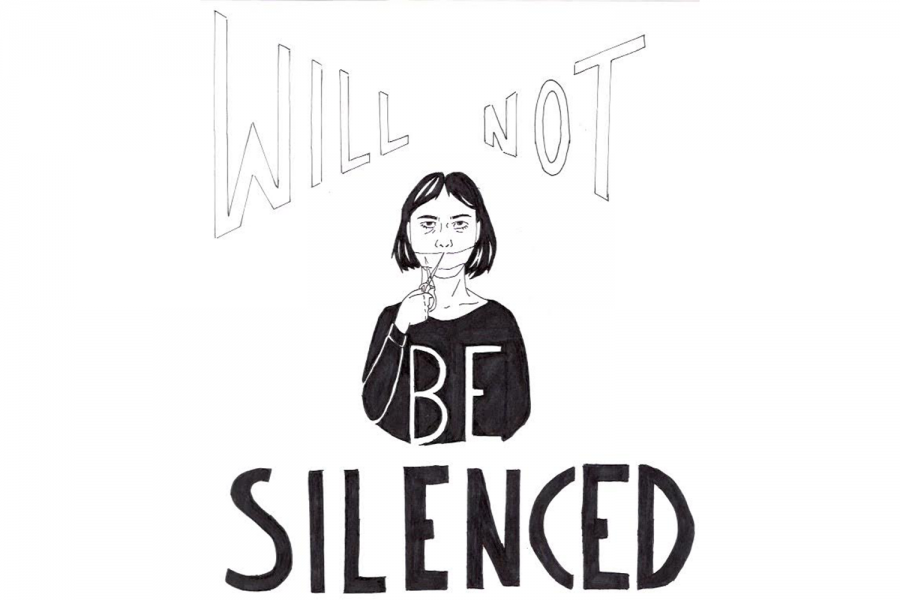




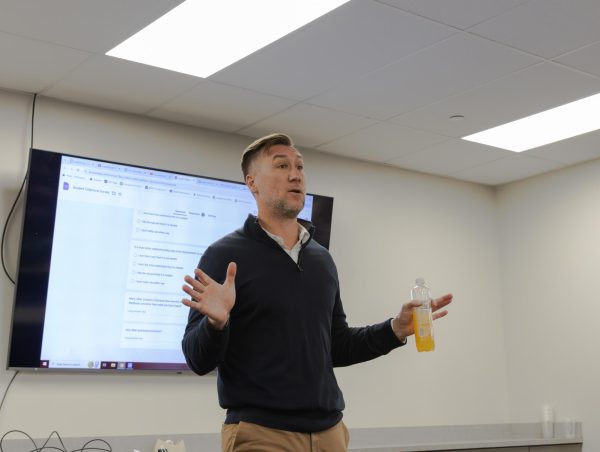
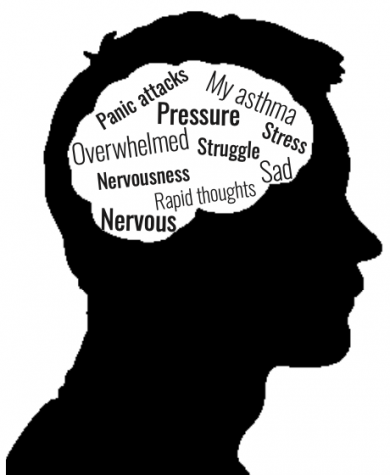
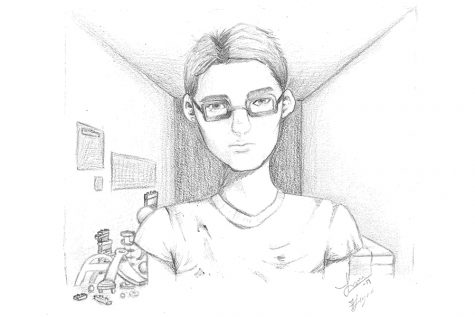
![Sophomore Raign Estes exhibits her self imposed tattoos. She gave herself her first tattoo the summer before sophomore year at age 15 in her own home. "I love [my tattoos], but every time I tattoo myself, I kind of get in front of the mirror and check it out and say I need more," Estes said. "I learned to appreciate that those tattoos are more than just an image and they're an experience for me. I'll always remember the feeling of tattooing them on myself, the process of tattooing them and the time that I did it. I could probably look at each of these tattoos and go back to a day that I did them."](https://www.boosterredux.com/wp-content/uploads/2019/02/ReignTats-1-475x317.jpg)
